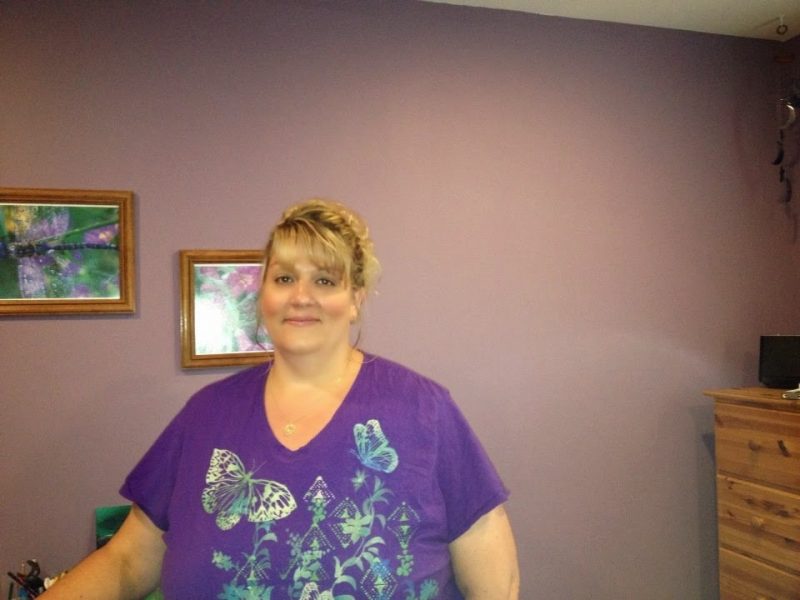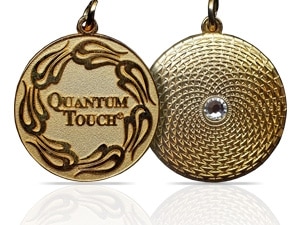
In-Depth Interview with Recovering Food Addict Jackie Stewart
Obesity is an epidemic in the United States, and heart disease, high blood pressure, stroke, type 2 diabetes, abnormal blood fats, metabolic syndrome, cancer, osteoarthritis, sleep apnea, and reproductive problems are common illnesses that follow people who are overweight, sometimes 100 pounds or 200 pounds overweight. The question people need to ask themselves is, “What can I do to overcome food addiction. Learn from our guest, Jackie Stewart, who had great success with the Renascent Pilot FA Program.
Well, the statistics are not good. Well over 30 percent of Americans are overweight, and obesity is a disorder that affects millions worldwide. People don’t have to be 100-200 pounds overweight; they can be slightly obese, and it can really affect their overall health.
How can someone get help to overcome their food addiction? I want you to meet someone who has been in those shoes, and that is Jackie Stewart.
Stacey Chillemi: Hello Jackie! Can you start by telling us a little about yourself?
Jackie Stewart: I lived with obesity for most of my adult life and tried every diet known to man, including Weight Watchers, Bernstein, cabbage soup, Scarsdale, you get the idea. I am good at dieting, but can’t do the maintenance afterward to maintain the loss. I was getting larger and larger after each failed attempt, so I tried what I thought was my last effort: bariatric surgery.
Stacey Chillemi: How would you define a food addiction?
Jackie Stewart: Food addiction has many definitions, but for me, it is an uncontrollable need to have as much of a certain type of food as I craved, no matter how full I felt, because no matter how full, I was, I felt empty. An overwhelming need that overshadowed everything else.
Stacey Chillemi: What are self-destructive eating habits?
Jackie Stewart: Self-destructive in food addiction is like alcohol or drugs, you continue to eat even though you know how bad it is for you, eg. Driving from 1 McDonalds, drive through to the next to get another fix, with the time in between just enough to make a bit more room.
Stacey Chillemi: Is there a process where someone slips into an unhealthy relationship with food?
Jackie Stewart: A process, yes for me. After my weight loss surgery, I was a poster child for 3.5 years, following the food plan they gave me with moderate amounts of sugar. However, I started to exceed the sugar amounts by adding another protein bar, cereal with sugar, and yogurt with sugar. What I didn’t realize is that I and other food addicts that sugar gave me more sugar cravings, so my 1 protein bar turned to 2 a day, then to 3, etc. I was using low-fat foods, which have added sugar for flavor when the fat is taken out and then I started watching the clock for when I could eat again, I was always carrying 3-4 snacks with me, as I was afraid to be without food.
I was planning activities around eating. In other words, I was living to eat, not eating to live. The food was a 7/24 compulsion but with a limited space to put it in. I wanted that full feeling. For me, the sugar craving led me in the direction it does for so many: wine. At first, it was a glass. For our altered systems, it does directly to the liver, and we feel it right away, and with very little. However, each time I drank, it took more and more to get to a “happy” place. In a matter of a couple of months, I could drink two bottles of wine in a few hours, even knowing how bad it was on the liver. And I have an alcoholic sister with cirrhosis. I’ve seen the liver damage up close.
Stacey Chillemi: What are the signs of an unhealthy relationship with food?
Jackie Stewart: The signs of an unhealthy food relationship would be bingeing, for me. Eating in “hidden” places and then disposing of the garbage. For example, the car. Also, keep food in hidden places that no one knows about. Making more food than you need so you can binge later. I once made an extra pumpkin pie at Thanksgiving, so when everyone was asleep, I could eat the whole thing. Feeling ashamed and guilty about your eating as you know it isn’t “normal.”
Stacey Chillemi: Can someone with a food addiction or self-destructive eating habits make positive changes by themselves, or should they seek professional help?
Jackie Stewart: I would say it would take someone extraordinary to make the changes without professional help. I liken it to the alcoholic, who is able to go to AA and become sober. However, some people need to focus one on one treatment to be and remain sober. I do consider AA to be professional, although it wouldn’t fit that definition.
Addicts can become clean and sober just by stopping their addictive behavior, however, by working a 12 step program, be it AA, NA, CA, OA, FA, or the many other food addiction programs, you gain serenity and a feeling of satisfaction, not a feeling of deprivation. I no longer carry snacks with me, and I am not thinking of my next meal when I finish my present one.
Stacey Chillemi: You mentioned prior to our interview that you had bariatric surgery. Was it successful?
Jackie Stewart: Bariatric surgery limited the size of what I put in my stomach, but it did nothing for cravings. I compared it to my smoking friend and asked if you had your hands amputated so you couldn’t smoke, would it stop your cravings? Yes, I lost weight after bariatric surgery. There is a “honeymoon” period where the weight literally falls off of you, but that takes a great toll on your health. Most people lose hair, we have malabsorption, so have to take many supplements. We are at a higher risk for osteoporosis, anemia, etc. If Dr. Harman’s program had been available, I would have successfully lost my weight that way, as many are doing now.
Stacey Chillemi: What would you like to tell others who are considering bariatric surgery?
Jackie Stewart: Bariatric surgery is changing your stomach to try and fix an issue in your head. The statistics on regaining weight are scary, the transfer from food addiction to alcohol can be deadly, and is! Any program that works on the reason for your weight gain is preferable. Please know there are other options available.
Stacey Chillemi: How else can someone get support outside of the 12-step community groups?
Jackie Stewart: For me, the 12-step program is the best. I learned that addicts are of higher intelligence, and that is so true. However, anything that gets to the underlying issue of abusing food and then how to turn off the triggers should work.
Stacey Chillemi: How did you overcome your food addiction?
Jackie Stewart: My food addiction was overcome by cold turkey. To enter the Renascent program, we had to abstain from alcohol for 72 hours, along with any drugs and their required time frame. However, I overindulged in sugar and wheat in those last days. Lots of Tim Horton’s donuts! The Renascent program is total abstinence from sugar, wheat, and grains, with very limited caffeine allowed. I went through terrible sugar and wheat withdrawal for about five days. Chills, sweats, shakes, headaches, body aches, mood swings, extreme fatigue. Wow, how awful these g’s are if the withdrawal does that.
Stacey Chillemi: Did you rely on a specific program to help you overcome your food addiction? If so, can you tell us a little about it?
Jackie Stewart: The food program keeps me satisfied, no cravings, no hunger between meals, a really nice sense of a normal relationship with food, something I can’t ever remember having.
Stacey Chillemi: Is there anything else you would like to add about food addictions or self-destructive eating habits?
Jackie Stewart: While I can’t recite it, Dr. Tarman teaches us about the chemical reactions we have with sugar and how it “feeds” our systems. It makes total sense to me. There are a number of documentaries on the dangers of sugar. That Sugar Movie is excellent. I didn’t know about the history. The sugar industry blamed the rise of heart attacks after WW11 on the increase of fat in our diet and lobbied Washington into believing them. Low fat became the rage, however, that meant increased sugar in these foods. Low-fat or no-fat yogurt or low-fat salad dressings are great examples. And with all of the switches to low-fat, the obesity epidemic is on the increase. Sugar is the enemy, not fat.
Stacey Chillemi: Is there a website people can visit to learn more about the Renascent Pilot FA Program?
Jackie Stewart: Renascent has its own website, or check out Food Junkies by Dr. Tarman.
Stacey Chillemi: Do you have a website or a blog people can visit?
Jackie Stewart: I was very active in the bariatric community in Ontario prior to my admission to the Renascent program for food addiction. The bariatric community operates in private Facebook groups, by word of mouth, and by bariatric center referrals. Since I posted about my own story at Renascent, I have created a group of about 125 people, mostly bariatric patients who have the same battle after surgery that I have and are interested in the program, and that number is growing.
I have no website or blog, however, if people would like to contact me they can do so through this website.






